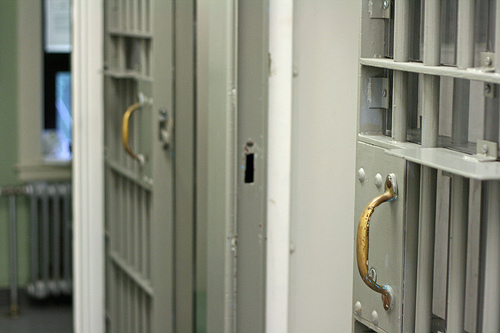Emphasizing Swift and Certain Over Severe
+ Brandon Fuller
Mark Kleiman points to Steve Lopez’s LA Times story on Hawaii’s Opportunity Probation with Enforcement (HOPE) program—a program Kleiman wrote about in his 2010 book When Brute Force Fails. The program fits several of Kleiman’s tenets for cost-effective crime control: arrests and punishments should be treated as costs rather than benefits, the swiftness and certainty of a punishment usually trump its severity, and the more credible a threat the less often it has to be carried out.
HOPE grew out of 1st Circuit Judge Steven Alm’s frustrations with persistent parole violations. Felony probationers faced 5 – 10 year sentences for parole violations, a punishment that struck judges and parole officers as draconian but also unrealistic because of prison overcrowding. Knowing that only the worst violators would see prison time, many probationers took their chances, continuing to abuse drugs and occasionally skipping appointments altogether.
“If somebody shows up at his probation office and tests positive,” Alm told colleagues when the program began in 2004, “I want him arrested on the spot.”
Those violators…are now brought before Alm as quickly as possible after their arrests and informed that they will have new terms for their probation.
They’ve got to call a hotline every morning, and if it instructs them to come in for a drug test, they’d better be there no matter how inconvenient it might be.
If they’ve used drugs, but confess to the probation officer before taking the test, they might get three days in jail. But if they fail to report that they’ve used drugs and then test positive, they’re likely to get 15 days, followed by 30 for the next offense. If they can’t keep clean, they’ll be required to attend drug and alcohol abuse meetings, or be ordered into outpatient treatment, followed by a two-year residential program if they screw up again.
And if they do, they’ll serve the full sentence they originally received when they went on probation, even if it’s 15 years or more.
The HOPE approach—frequent drug tests and immediate but initially small sanctions that escalate with repeat violations—works remarkably well in Hawaii:
A 2009 study by professor Hawken for the U.S. Department of Justice found that HOPE probationers were 55% less likely to be arrested in a new crime than probationers not in the program. They were 72% less likely to use drugs, 61% less likely to skip appointments with their probation officer and 53% less likely to have their probation revoked, and they were sentenced to 48% fewer days of incarceration. And by offering probationers a chance to get clean on their own, precious drug treatment slots were saved for those who truly needed them.
Though Kleiman reports that efforts to replicate the program elsewhere have been frustratingly slow, there are signs that other jurisdictions are picking up on the lessons. The LA Times piece mentions that the Justice Department is funding at least some pilots around the United States.


